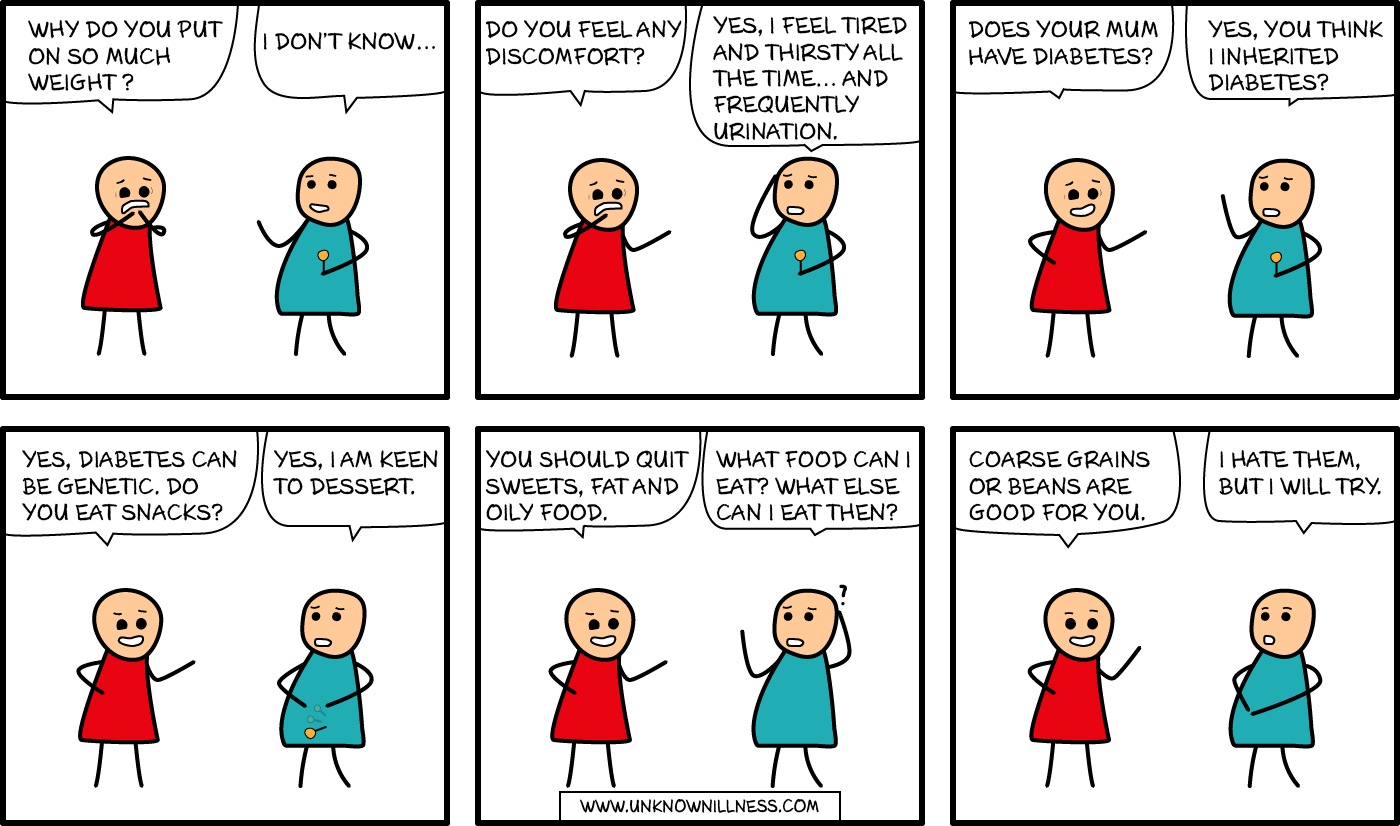Excessive Thirst and Frequent Urination. Am I Getting Diabetes?
Female, 29 years old, frequent urination, drinks excessive amounts of water and is always suffering from fatigue, with a family history of diabetes.

Recently, I have been suffering from fatigue and found it hard to focus on my work, as I just want to sleep all the time. Also I always feel thirsty, so I drink lots and lots of water, which means I also have to urinate frequently. My weight was 80kg, but during the last two weeks, it has fallen to 75kg. Last week, our company had organised a physical examination and the report shows that my glucose level (glycemic index) in the blood was 7.09. Is this normal? My mother has diabetes, but I am not sure if this is hereditary. Do I have diabetes?
• Weight loss
• Overweight
• Drink frequently and excessively
• Frequent urination
The obvious symptoms of diabetes are excessive thirst and frequent urination, but an explicit diagnosis depends on fasting plasma glucose (FPG), which means you should stop eating (but continue to drink water) at least 8 to 10 hours before the test. The normal FPG index is 3.9 to 6.1, if it reaches or exceeds 7.0 twice (repeating the test the following day), you may have diabetes. However, if you take the blood-glucose examination after meals you have to be aware that the blood glucose changes within the next 2 hours, after which the blood-glucose examination should be repeated. Under this condition, the criteria of diabetes changes, like when the blood-glucose index increases to 11.1 or more. It’s difficult to diagnose if you have diabetes, because I don’t know whether you had the test under the condition of an empty stomach. As your mother has diabetes, which is a genetic disease, the risk of diabetes is higher for you than for others who have no family history of this illness. You should run the relevant test again according to your requirement.
Diabetes patient should pay particular attention to their diet, for example:
• Avoid: white sugar, brown sugar, syrup, desserts, sweets, honey and other high-sugary foods.
• Limit intake: potato, cream, taro, lard, oil, butter, peanuts, offal and similar foods.
• Advisable: grains, bean-products, oatmeal and similar foods.
Ask a Question Related unknown illnessShare: